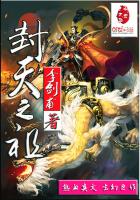And (that nothing may lack in this philanthropic centre) Science there studies the tides and longitudes, Monsieur de Chateaubriand has erected the Marie-Therese Infirmary, and the Carmelites have founded a convent. The great events of life are represented by bells which ring incessantly through this desert,--for the mother giving birth, for the babe that is born, for the vice that succumbs, for the toiler who dies, for the virgin who prays, for the old man shaking with cold, for genius self-deluded. And a few steps off is the cemetery of Mont-Parnasse, where, hour after hour, the sorry funerals of the faubourg Saint-Marceau wend their way. This esplanade, which commands a view of Paris, has been taken possession of by bowl-players; it is, in fact, a sort of bowling green frequented by old gray faces, belonging to kindly, worthy men, who seem to continue the race of our ancestors, whose countenances must only be compared with those of their surroundings.
The man who had become, during the last few days, an inhabitant of this desert region, proved an assiduous attendant at these games of bowls; and must, undoubtedly, be considered the most striking creature of these various groups, who (if it is permissible to liken Parisians to the different orders of zoology) belonged to the genus mollusk. The new-comer kept sympathetic step with the /cochonnet/,--the little bowl which serves as a goal and on which the interest of the game must centre. He leaned against a tree when the /cochonnet/ stopped; then, with the same attention that a dog gives to his master's gestures, he looked at the other bowls flying through the air, or rolling along the ground. You might have taken him for the weird and watchful genii of the /cochonnet/. He said nothing; and the bowl-players--the most fanatic men that can be encountered among the sectarians of any faith --had never asked the reason of his dogged silence; in fact, the most observing of them thought him deaf and dumb.
When it happened that the distances between the bowls and the /cochonnet/ had to be measured, the cane of this silent being was used as a measure, the players coming up and taking it from the icy hands of the old man and returning it without a word or even a sign of friendliness. The loan of his cane seemed a servitude to which he had negatively consented. When a shower fell, he stayed near the /cochonnet/, the slave of the bowls, and the guardian of the unfinished game. Rain affected him no more than the fine weather did; he was, like the players themselves, an intermediary species between a Parisian who has the lowest intellect of his kind and an animal which has the highest.
In other respects, pallid and shrunken, indifferent to his own person, vacant in mind, he often came bareheaded, showing his sparse white hair, and his square, yellow, bald skull, like the knee of a beggar seen through his tattered trousers. His mouth was half-open, no ideas were in his glance, no precise object appeared in his movements; he never smiled; he never raised his eyes to heaven, but kept them habitually on the ground, where he seemed to be looking for something.
At four o'clock an old woman arrived, to take him Heaven knows where; which she did by towing him along by the arm, as a young girl drags a wilful goat which still wants to browse by the wayside. This old man was a horrible thing to see.
In the afternoon of the day when Jules Desmarets left Paris, his travelling-carriage, in which he was alone, passed rapidly through the rue de l'Est, and came out upon the esplanade of the Observatoire at the moment when the old man, leaning against a tree, had allowed his cane to be taken from his hand amid the noisy vociferations of the players, pacifically irritated. Jules, thinking that he recognized that face, felt an impulse to stop, and at the same instant the carriage came to a standstill; for the postilion, hemmed in by some handcarts, had too much respect for the game to call upon the players to make way for him.
"It is he!" said Jules, beholding in that human wreck, Ferragus XXIII., chief of the Devorants. Then, after a pause, he added, "How he loved her!--Go on, postilion."















